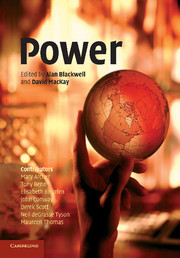2 - Powers of ten
Published online by Cambridge University Press: 07 August 2009
Summary
A few years ago, astronomers and astrophysicists did not agree on the age of the universe. Some said it might be 10 billion years old, others said 20 billion. You might think that we were completely clueless, not to know by a factor of two how old the universe is. But you have to consider that no-one was arguing the universe might be a trillion years old, or a quadrillion years, or a hundred years old. We were only within a factor of two of each other, and this was a pretty good thing. We knew we were nearing agreement. In fact the most recent data indicate an age of 14 billion years, plus or minus one or two. In the universe, quantities of time, size, temperature and distance come in such a vast range that factors of two between friends are not important.
Introducing powers of ten
In this chapter, we're going to cover that whole vast range. But if we're going to get through the entire universe in a few pages, factors of ten are the smallest differences we should worry about.
100 = 1
We'll start here, the number 1. This needs no introduction. The number 1 has no zeros to follow it, so we can write it as ten to the zeroth power. That zero tells us how many zeros follow the 1, if you're going to write it out. This fact turns out to be very important later on.
- Type
- Chapter
- Information
- Power , pp. 21 - 35Publisher: Cambridge University PressPrint publication year: 2006



